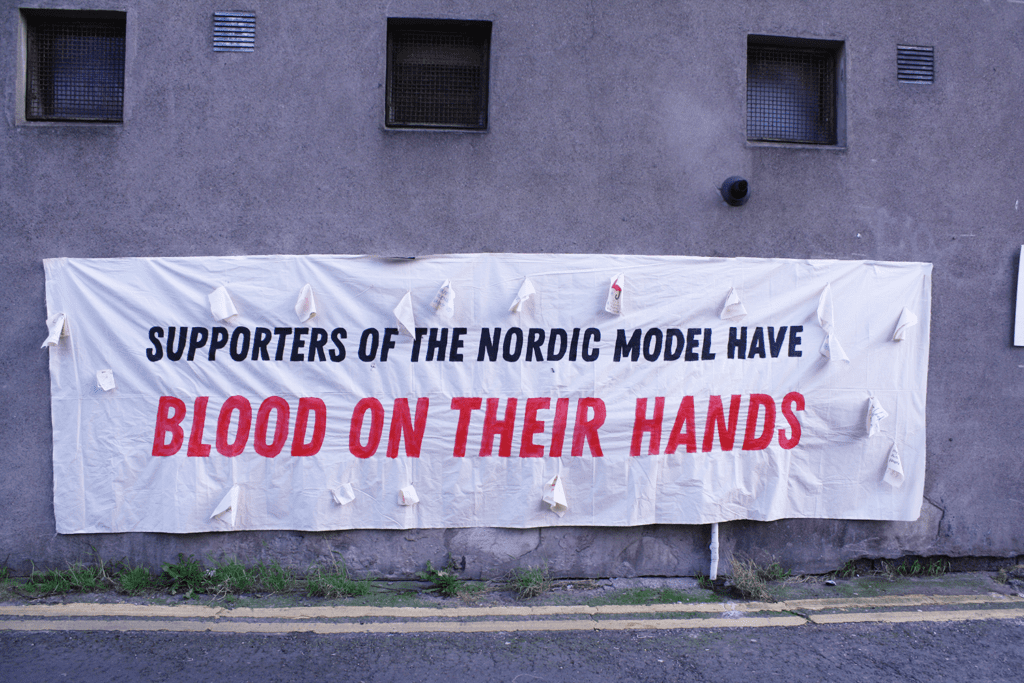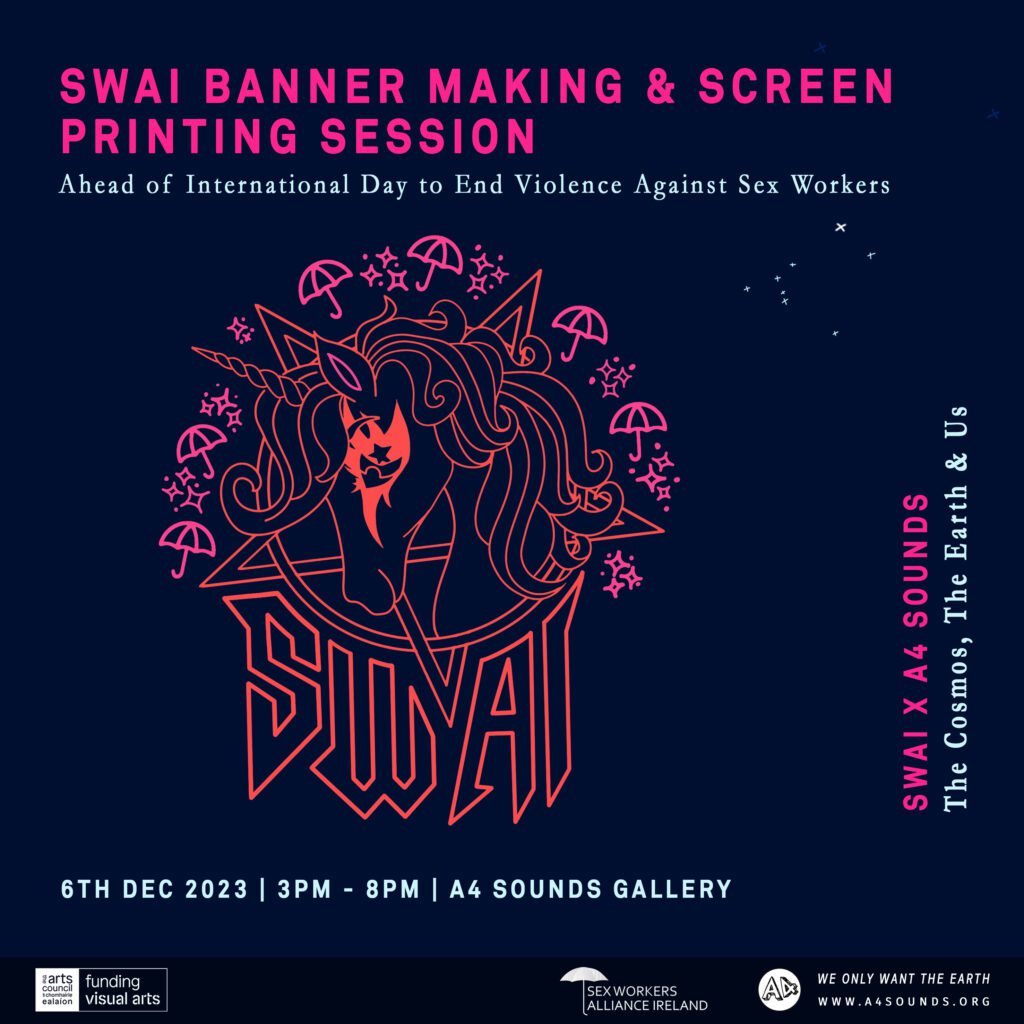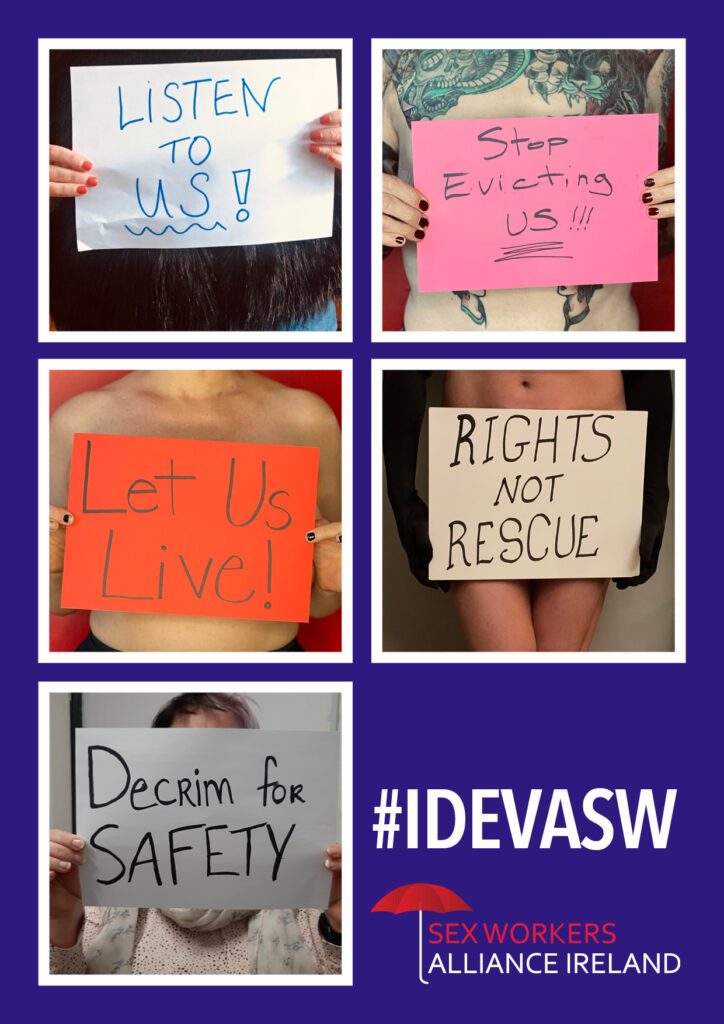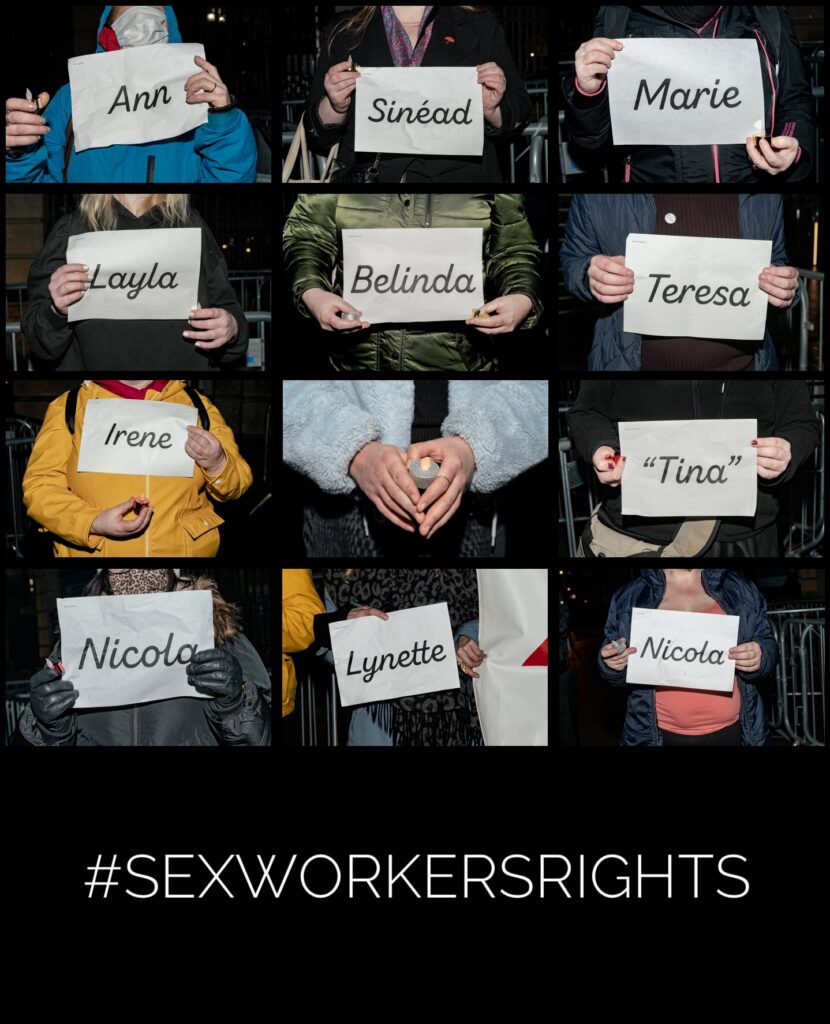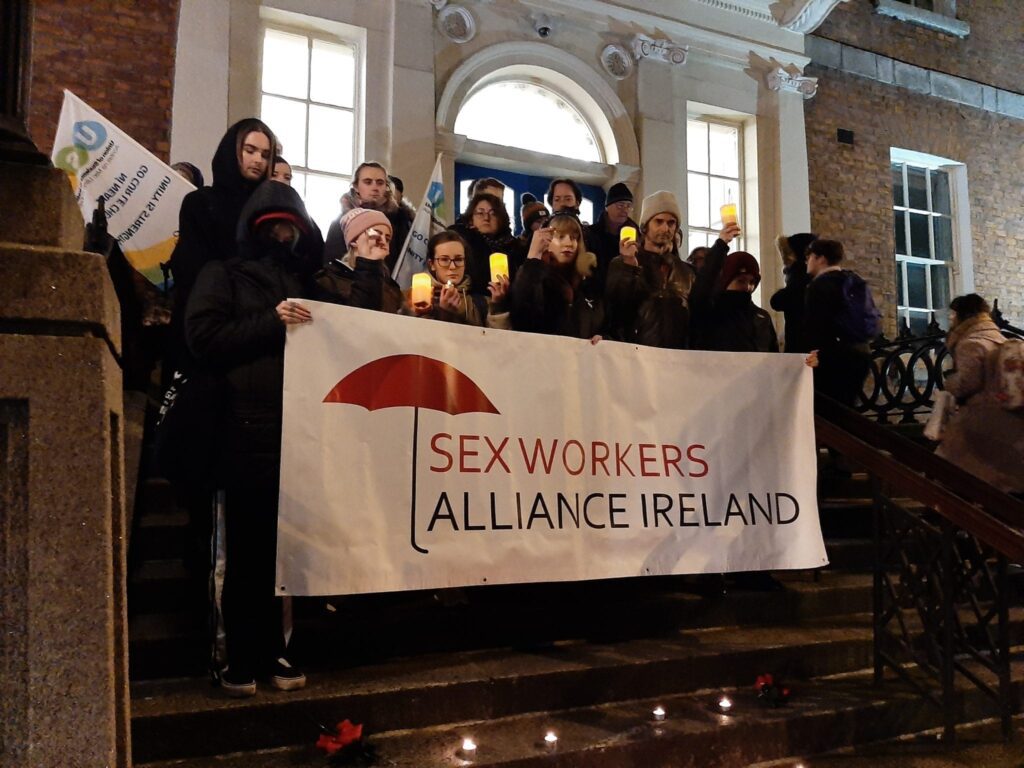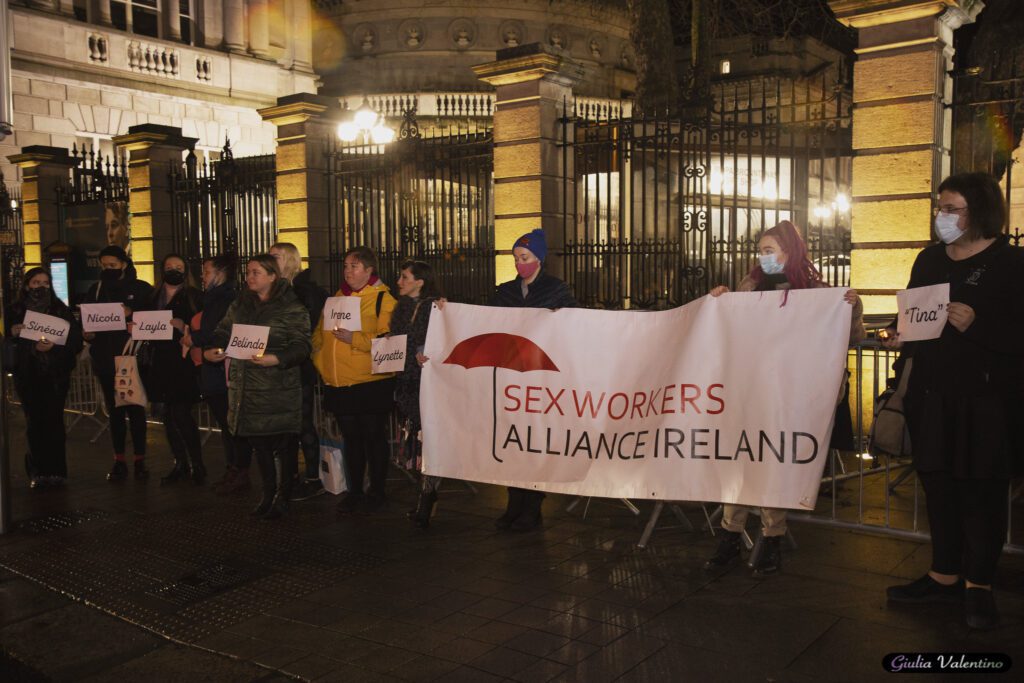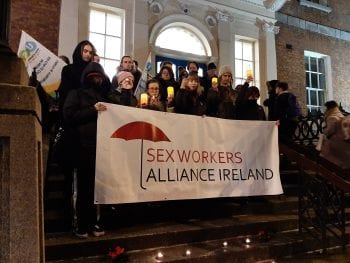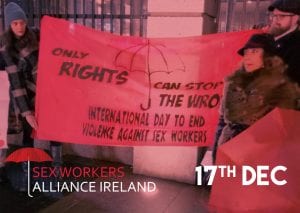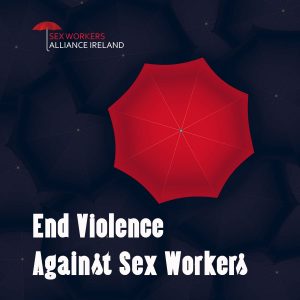International Day to End Violence Against Sex Workers (17th Dec) exposes how laws that claim to protect are, in reality, resulting in harassment, violence and even death. The structural violence and stigma that sex workers face in Ireland are a result of a whorephobic* state that ignores sex workers’ needs in favour of laws based on ideology rather than safety.

“The past 12 months have been oppressive for sex workers in Ireland,” says Linda Kavanagh, spokesperson for the Sex Workers Alliance Ireland (SWAI). “In January we reported scam texts targetting migrant sex workers that escalated to extreme threats of violence and death. Later in the year, we described the stalking and harassment by self-appointed monitors of sex workers, who compiled dossiers of information about sex workers and sent it to media, Gardaí and local politicians. We welcomed the Gardaí’s statement that these actions were concerning and that they endangered sex workers.”
“However this year, the police have been failing sex workers. We received no contact when a predator stalked streets, who had previous convictions and was suspected of attempting to abduct and rape sex workers. A PSNI officer was accused of paying for sex and the PSNI admitted a woman being prosecuted for trafficking in Northern Ireland could credibly be a trafficking victim.
This year we learned that the Department of Justice is finalising the review into sex work laws in Ireland. This is deeply unethical and showcases the outgoing government’s contempt for sex workers. The review has been repeatedly delayed and the newest date that has been reported is early 2025. This process has been farcical.
SWAI demands the release of this review as soon as possible because we know these laws are failing. The law did nothing to stop a brutal rapist who was jailed for 18 years in July of this year. In fact, statistics published by the courts and the Minister for Justice in October are proof that sex work laws are a complete failure. Again, we ask, who are these laws for?
“There has been a lot of discussion about violence against women on this island this year. We finally got confirmation that Paiche Onyemaechi who was killed in 2004, was a sex worker. Her case shows that even when a woman is murdered there is shame about outing her sex worker status. New research published this year shows that any aspect of the criminalisation of sex work harms sex workers themselves. This research also highlights that sex workers in Ireland have been ignored about the harms of the law and that, among the countries participating, sex workers in Ireland felt more stigmatised than in other countries.”
One sex worker has said “We are everywhere including in your workspaces. We’re nurses, teachers, paramedics, and the parents at the school gate. Take off the Hollywood lens about what you think sex workers are.”
Kavanagh continued “We demand the new government, in whatever form it takes, recognises the violence it perpetrates against sex workers in Ireland. Whether it be through using condoms as evidence that sex work has occurred, the housing and cost of living crises that push people into sex work or the stigmatisation and silencing of a marginalised community, the state is a vector of violence. We need Ireland to get real about sex work.”
* Whorephobia is a term used to describe hate speech and overt discrimination against sex workers. It intersects with racism, xenophobia, classism, and transphobia, which often leads to structural discrimination, violence, and abuse. Whorephobia is deeply ingrained within societies…. – NSWP definition of whorephobia

